Mesophotic Reefs in the Indian Ocean Region
Project Overview
Our marine environment is under increasing threat from human activities and climate change, requiring an urgent improvement in conservation management strategies. Current conservation management strategies for our marine environment have traditionally been solely based on biological approaches, with only limited attention given to physical processes such as ocean currents. Such oversimplified approaches cannot possibly explain the functioning of how complex ecosystems evolve. Mesophotic reefs contain species that are better adapted to the cooler waters and low light conditions found at depth. It is believed that corals living in the mesophotic zone (30-150m) may supply larvae to the shallower bleached coral communities through vertical oceanic currents.
In order to understand the role of mesophotic reefs we survey the reef using a remotely operated vehicle (ROV), equipped with high resolution video imagery. It allows us to map the extent and health of mesophotic reefs, to identify species composition and biodiversity, and to collect biological samples for analysis. We also use multibeam acoustic surveys to map the regional distribution of mesophotic reefs.
For us to successfully implement conservation strategies for the MPA surrounding the Chagos Archipelago, it is crucial to develop an accurate understanding of the complex connections between the physical, biogeochemical and biological processes within the ecosystem. We have no current understanding of how the marine ecosystem functions across all stages of the food web, from the microscopic phytoplankton which are at the basis of marine life, up to the top predators like sharks. Moreover, we only have limited knowledge of which stimuli influence the behaviour of different animals. Our ability to answer these questions has been hindered by the ongoing destruction of the marine environment. Crucial links between animals in the food chain have been destroyed, rendering it almost impossible to understand how a healthy ecosystem works.
Mesophotic reefs may act as a lifeboat to threatened coral communities in a warming climate.
Key Facts
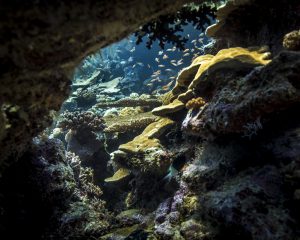
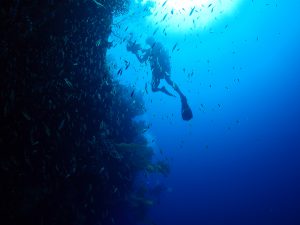
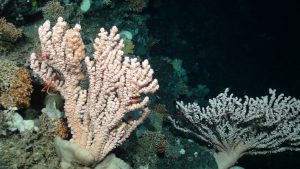
News
Publications

Predicting the Distribution of Mesophotic Coral Ecosystems in the Chagos Archipelago
Diaz, C., Howell, K.L., Graves, K.P., Bolton, A., Hosegood, P., Robinson, E., Foster, N.L. (2025). Predicting the Distribution of Mesophotic Coral Ecosystems in the Chagos Archipelago. Ecology and Evolution.
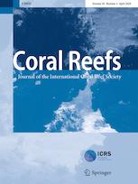
Diverse and Ecologically Unique Mesophotic Coral Ecosystems in the Central Indian Ocean
Diaz, C., Howell, K.L., Hosegood, P., Bolton, A., Foster, N.L. (2024). Diverse and ecologically unique mesophotic coral ecosystems in the central Indian Ocean. Coral Reefs.
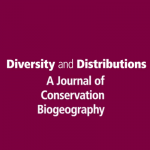
Light and Temperature Drive the Distribution of Mesophotic Benthic Communities in the Central Indian Ocean
Diaz, C., Howell, K.L., Robinson, E., Hosegood, P., Bolton, A., Ganderton, P., Arber, P., Attrill, M.J., Foster, N.L. (2023) Light and temperature drive the distribution of mesophotic benthic communities in the Central Indian Ocean. Diversity and Distributions.

Mesophotic Coral Bleaching Associated with Changes in Thermocline Depth
Diaz, C., Foster, N.L., Attrill, M.J., Bolton, A., Ganderton, P., Howell, K.L., Robinson, E., Hosegood, P. (2023). Mesophotic coral bleaching associated with changes in thermocline depth. Nature Communications.

Application of Earth Observation Data and Google Earth Engine for Monitoring Coral Reef Exposure to Environmental Stressors
Williamson, M.J., Tebbs, E.J., Thompson, H.J., Dawson, T.P., Head, C.E.I., Jacoby, D.M.P. (2021). Application of earth observation data and Google Earth Engine for monitoring coral reef exposure to environmental stressors. Remote Sensing.










